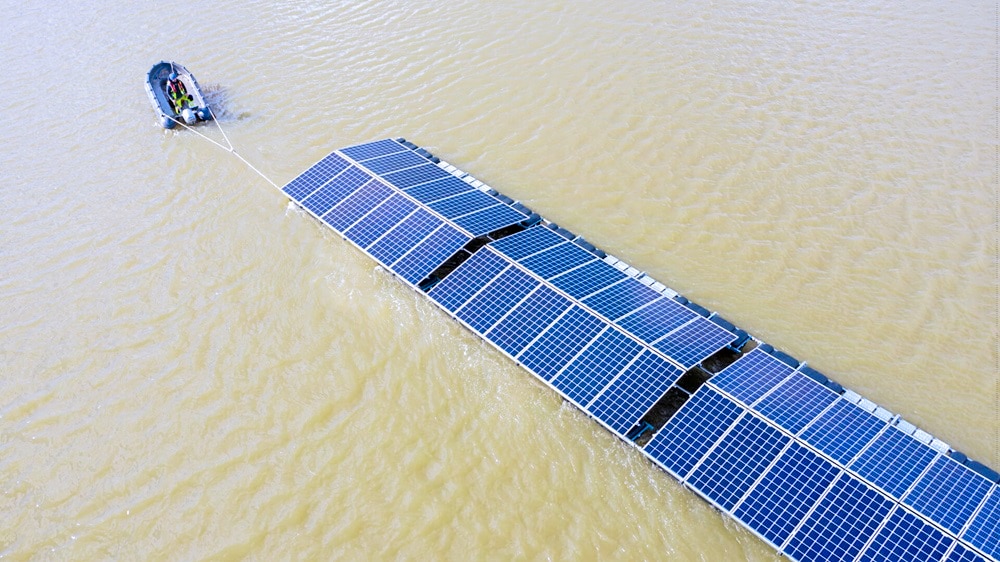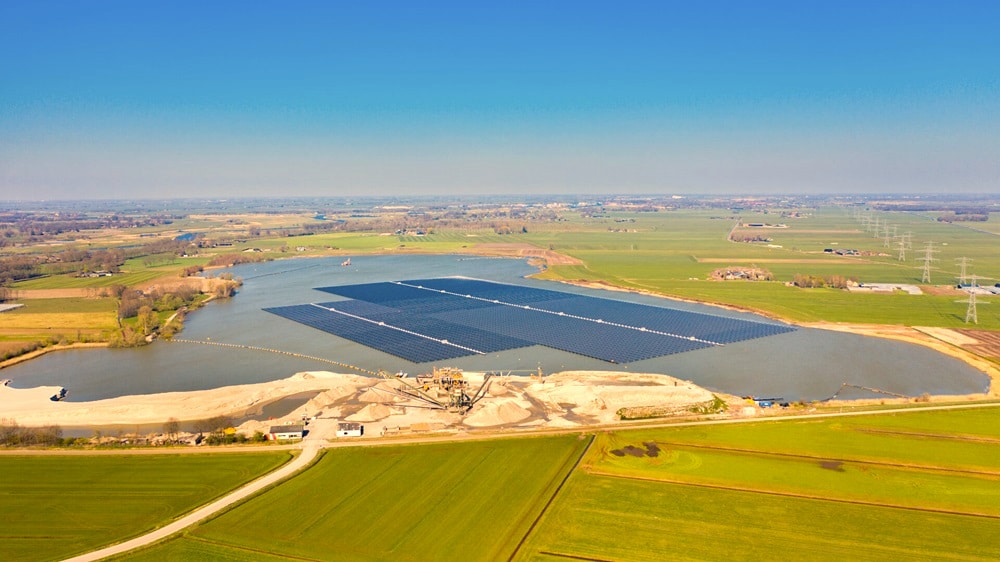German renewable energy developer BayWa r.e. has collected data from environmental impact monitoring studies on eight operational floating PV facilities in Europe. The results are surprising and encouraging: floating solar panels generate clean energy and create artificial habitats that benefit aquatic life and improve water quality.
Are you looking to save money on your electricity bills and reduce your carbon footprint? Solar energy is the perfect solution! Energy Matters can help you get up to 3 FREE solar quotes from pre-qualified and vetted solar firms in your area.
Energy Matters has been a leader in the renewable energy industry since 2005 and has helped over 40,000 Australian households in their journey to energy independence. With Energy Matters, you can be sure you’re getting the best possible deal on solar energy. We only work with reputable solar firms with a proven track record of delivering high-quality solar systems.
Biohuts: Nurseries for fish and havens for microorganisms
One key finding is the effectiveness of “biohuts,” structures placed under the floating panels. These biohuts act as nurseries for small fish, protecting them from predators and providing spawning grounds. They also create a haven for microorganisms and invertebrates, boosting the ecosystem’s health.
At BayWa r.e.’s Bomhofsplas floating solar park in the Netherlands, studies conducted three years after installation showed a significant increase in fish and invertebrate populations under the biohuts. This suggests that these artificial habitats can be vital in enhancing aquatic biodiversity.

Maintaining water quality: A balancing act
Another concern surrounding floating solar panels is their potential impact on water quality. However, BayWa r.e.’s studies at Bomhofsplas found no negative changes in water quality after installing the panels. The University of Groningen monitored water quality for over 10 months, using sensors placed at different depths under the panels and in open water.
The results revealed that dissolved oxygen levels remained normal, with minimal temperature differences between the water under the panels and open water. The panels even helped moderate water temperature fluctuations, keeping it cooler during hot and cold periods.
Sharing the space with feathered friends
BayWa r.e.’s research also explored the impact of floating solar panels on birdlife. A study at the Weperpolder floating solar farm, located near a natural area, showed that bird populations remained stable after the construction of the panels. Ducks and seagulls were even observed using the panels as resting places.
Are you tired of being the last to know about renewable energy updates? Did you miss out on a state rebate or incentive? Looking to find out more about how you can save on your utility bills? Subscribe to Energy Matters’ weekly newsletter and keep updated with Australian and international news, incentives, and offers.
Building knowledge, one panel at a time
“This research effort allows us to improve our knowledge and the design of our parks,” said Constantin Magne, a spokesperson for BayWa r.e. in France. “A large number of articles are published, but only a few are based on measurements, monitoring or solid scientific bases.”
By conducting and sharing these rigorous environmental impact studies, BayWa r.e. demonstrates its commitment to developing sustainable floating solar solutions that benefit humans and the environment. As the company continues to expand its operations, with 19 floating solar parks currently under construction or in operation, its research will play a crucial role in shaping the future of this promising clean energy technology.
Sources: BayWa r.e., PV Magazine

The future of floating solar
The findings from BayWa r.e.’s studies testify to the potential of floating solar as a sustainable and environmentally friendly energy source. By carefully designing and monitoring these solar farms, we can ensure that they generate clean power and contribute to the health and vitality of our aquatic ecosystems.
As the world transitions towards renewable energy sources, floating solar is poised to play a significant role. With its ability to generate clean energy without taking up valuable land resources and even enhancing aquatic life, it is a technology that offers a bright future for both our planet and its inhabitants.
BayWa r.e.’s research provides compelling evidence that floating solar can be a win-win solution for energy generation and environmental protection. By embracing this innovative technology and conducting further research, we can ensure that the future of energy is bright and sustainable.
Is solar energy suitable for your business?
Solar energy has numerous advantages that are worth investigating. Investing in solar will minimise your operational costs, reduce your company’s carbon footprint, and prepare it for the future. A commercial property with a solar installation is excellent for business.
When installing commercial solar for a company, it is crucial to be informed of all types of federal government solar rebates, incentives and the many benefits these provide, as they may help Australian businesses become future-ready and sustainable for years to come.
Contact us today for up to 3 FREE quotations from commercial solar firms we’ve pre-qualified and vetted for their track record of delivering Australia’s best business solar systems.













































